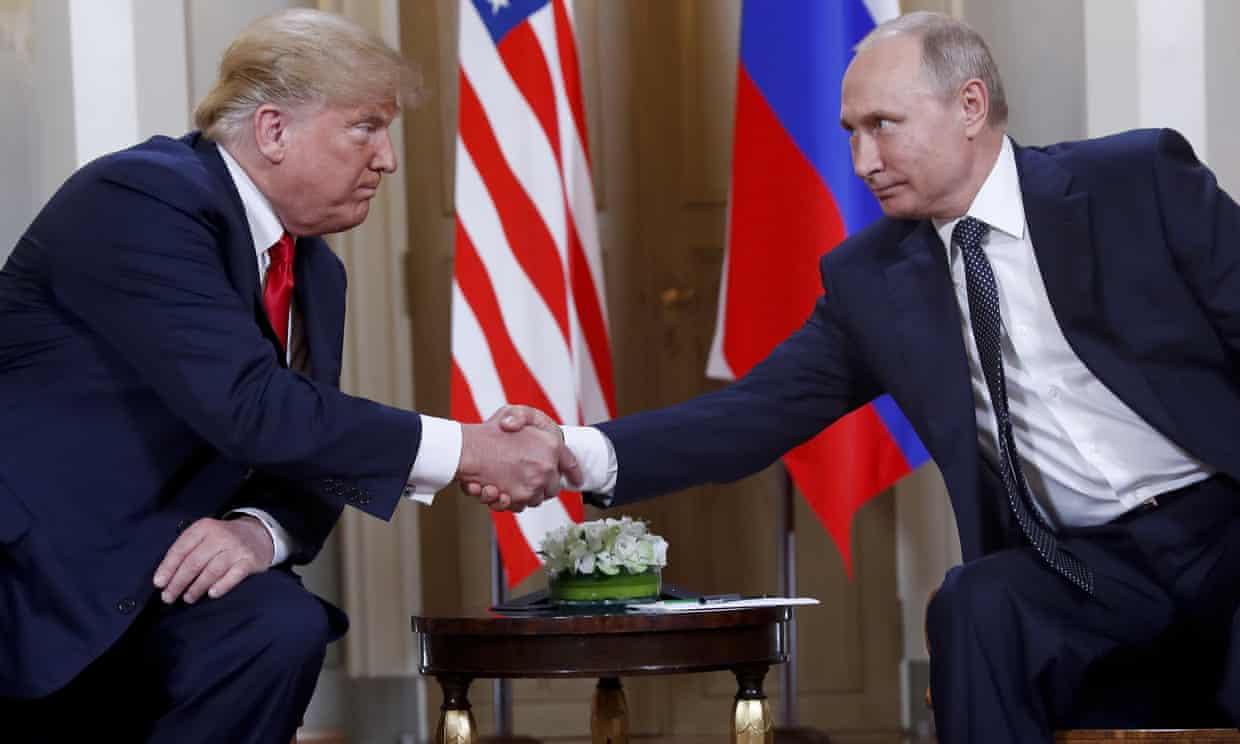
Democrats say Trump’s attempts to conceal his conversations with the Russian leader raise questions about his motivations
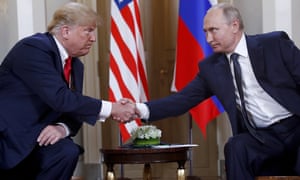
Since Donald Trump was sworn in as president he has met his Russian counterpart, Vladimir Putin, five times. The details of their conversations remain unknown to the public, and in most cases even to senior administration officials.
Democrats in Congress are now demanding more details of communications between the two leaders. Secrecy around such meetings, they say, raises fresh questions about the nature of Trump’s relationship with Putin at a time when his ties to Russia are the subject of several investigations.
The meetings with Putin are not the only subject of such Democratic demands. House leaders left little room for doubt this week that they will utilize their newly minted majority to cast a wide net around the president, his family and their businesses.
The judiciary committee issued document requests to 81 individuals and entities, seeking information on everything from contacts between Trump aides and Moscow to hush money payments to women and possible obstruction of justice.
It all came a week after Trump’s former personal attorney, Michael Cohen, testified before Congress and implicated the president in alleged criminal activity spanning decades.
What kind of things are being discussed that the president does not want to share?
Nonetheless, according to some national security experts, when it comes to uncovering the motivations behind the president’s desire for closer relations with the Kremlin and the complex web of contacts between his associates and Moscow, few interactions might be more consequential than those between Trump and Putin.
“What kind of things are being discussed that the president does not want to share?” said Steven Pifer, a former US ambassador to Ukraine who served on Bill Clinton’s National Security Council as senior director for Russia, Ukraine and Eurasia.
“Is he discussing Trump Tower? What’s the basis for the discussion? We just don’t know.
“I don’t know why the president doesn’t have a notetaker … That would be the best way to send off any suspicions that something untoward has been done.”
In fact, translators have been present at meetings between Trump and Putin, such as in Hamburg in 2017 and in Helsinki last year. But it has been reportedthat the president has taken unusual steps to keep their notes private.
Trump’s posture towards Russia has been a focus of his time in the White House, confounding national security officials and exposing rifts between the president and prominent members of his administration.
In his first year in office, after Congress forced his hand by building a veto-proof majority, Trump begrudgingly signed sanctions that were passed in part to punish Moscow for its interference in the 2016 presidential election. But he resisted attempts to impose additional sanctions, including over Kremlin support for chemical weapons attacks carried out by the Assad regime in Syria.
The president has publicly disagreed with warnings from his own intelligence chiefs that the Russians are still seeking to influence in US elections. National Security Agency chief Adm Mike Rogers testified before Congress last year that the administration was not doing enough to disrupt Russian cyberattacks at source, in part because the president had not authorized such an effort.
Trump has continued to express admiration for Putin, famously accepting his denials of Russian involvement in the 2016 election at their summit in Finland. That put the president squarely at odds with the US intelligence community and invited an avalanche of criticism.
Democrats now say Trump’s reportedly forceful attempts to conceal his communications with Putin raise questions about his motivations in pursuing closer relations with a regime largely regarded as a primary adversary.
In a joint letter this week, the chairs of the House intelligence, foreign affairs and oversight committees raised “profound national security, counterintelligence and foreign policy concerns, especially in light of Russia’s ongoing active measures campaign to improperly influence American elections.
“In addition, such allegations, if true, undermine the proper functioning of government, most notably the Department [of State]’s access to critical information germane to its diplomatic mission and its ability to develop and execute foreign policy that advances our national interests.”
If Trump’s communications were intentionally manipulated or withheld from the official record, the Democrats said, it would be a possible violation of federal law requiring “that presidents and other administration officials preserve such materials”.
Cohen’s testimony opened several lines of inquiry regarding Trump’s ties to Russia. But few revelations have drawn more scrutiny than those regarding negotiations about building a Trump Tower in Moscow.
Cohen previously told the Senate intelligence committee conversations about a potential Trump Tower Moscow ended before February 2016, when primary voting began. It was later uncovered, through his cooperation with the special counsel, that attempts to reach a deal continued until at least that summer, past the point at which Trump had effectively secured the Republican nomination.
Cohen, who will begin a three-year prison sentence in May, has said he received an implicit order from Trump to lie to Congress. The president denies it. The president’s former lawyer and fixer also said two of Trump’s children, Donald Trump Jr and Ivanka Trump, were briefed on Trump Tower Moscow approximately 10 times, contradicting their claims of minimal knowledge of the discussions.
Instead of doing infrastructure, instead of doing healthcare, instead of doing so many things, they want to play games
Democrats have signaled they will call both Donald Jr and Ivanka before Congress. They have also summoned Felix Sater, a longtime associate of Trump, to testify in public before the intelligence committee on 14 March. Sater has been linked to the Russian mob and allegedly suggested Trump Tower Moscow, which never came to fruition, should include a $50m penthouse as a gift to Putin.
Democrats say there is reason to delve into the negotiations, which took place as then-candidate Trump lavished praise on Putin and vowed to improve US-Russia relations.
Cohen also alleged that Trump was aware of his longtime adviser Roger Stone’s outreach to WikiLeaks, in advance of its release of hacked Democratic party emails.
In their document requests, Democrats included WikiLeaks founder Julian Assange and at least three individuals associated with Stone who were believed to have been in contact with WikiLeaks: Jerome Corsi, Randy Credico and Ted Malloch.
Some of those subjects have been interviewed by special counsel Robert Mueller. His investigation will conclude with a report to Congress. It is not expected to break with justice department guidelines suggesting a sitting president cannot be indicted.
The onslaught of congressional inquiries means the president will remain under an investigative cloud for the foreseeable future, if not the rest of his time in office. Trump has accused Democrats of “presidential harassment” and being more preoccupied with investigating than legislating.
“Instead of doing infrastructure, instead of doing healthcare, instead of doing so many things that they should be doing, they want to play games,” he said. “It’s a disgrace to our country.”
Polling has found that a majority of Americans back the Democrats’ investigations of Trump, although fewer support impeachment, the procedure to remove a president that could follow such committee investigations.
Trump has said he will cooperate with the inquiries, even as he has decried them as part of a “witch hunt” against him. The White House has stymied several requests and is expected to argue that many of Trump’s dealings in office are protected by executive privilege.
Alice Stewart, a Republican strategist, said it was no surprise Democrats were on the offensive after campaigning in the 2018 midterms on restoring congressional oversight of the executive branch.
“They’re following through on what a lot of people expected them to do,” she said. “Republicans are going to take issue with it, but this is what their base really wants them to do.”
Stewart, a supporter of Trump, said it was “appropriate” for Democrats to ask questions and request documents.
“I take the president and the administration at their word when they say there’s nothing wrong, that there’s no collusion,” she said.
“The best way for them to put this all to rest is for them to comply with these investigations, put the information out there, let them find what they’re going to find, and then we can move on.”
The Guardian

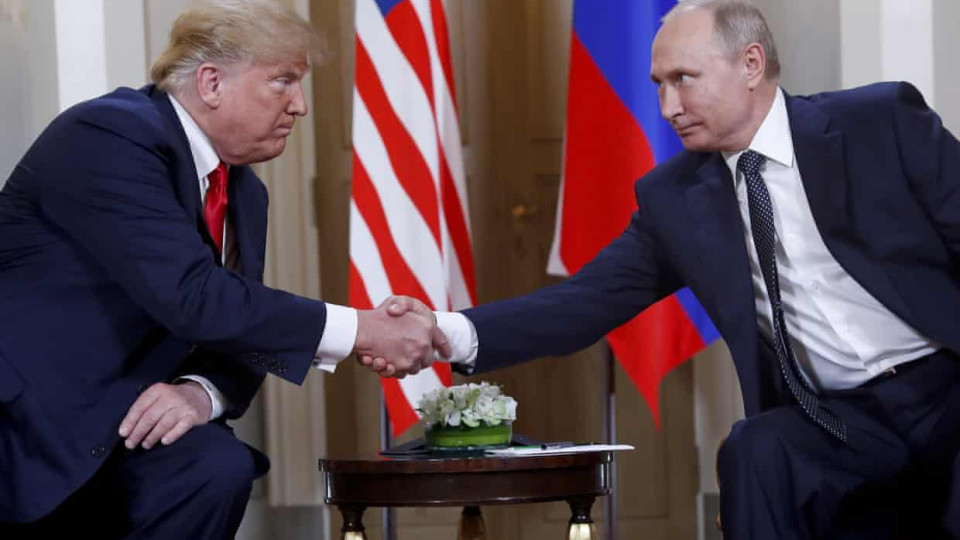
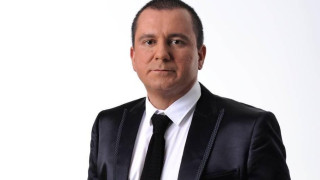
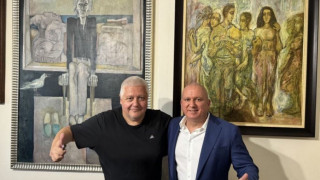


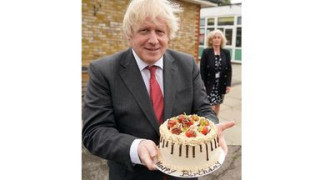


Leave a comment